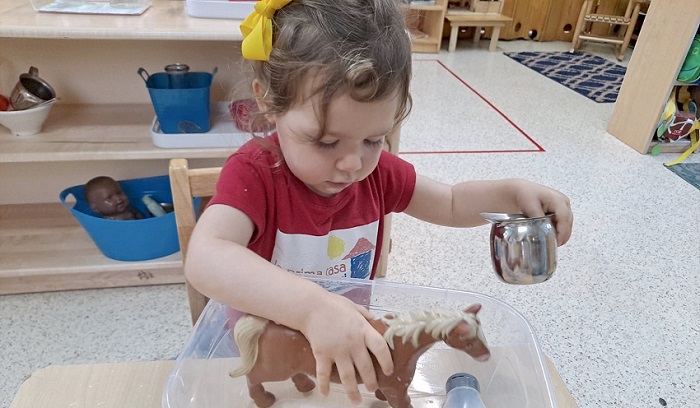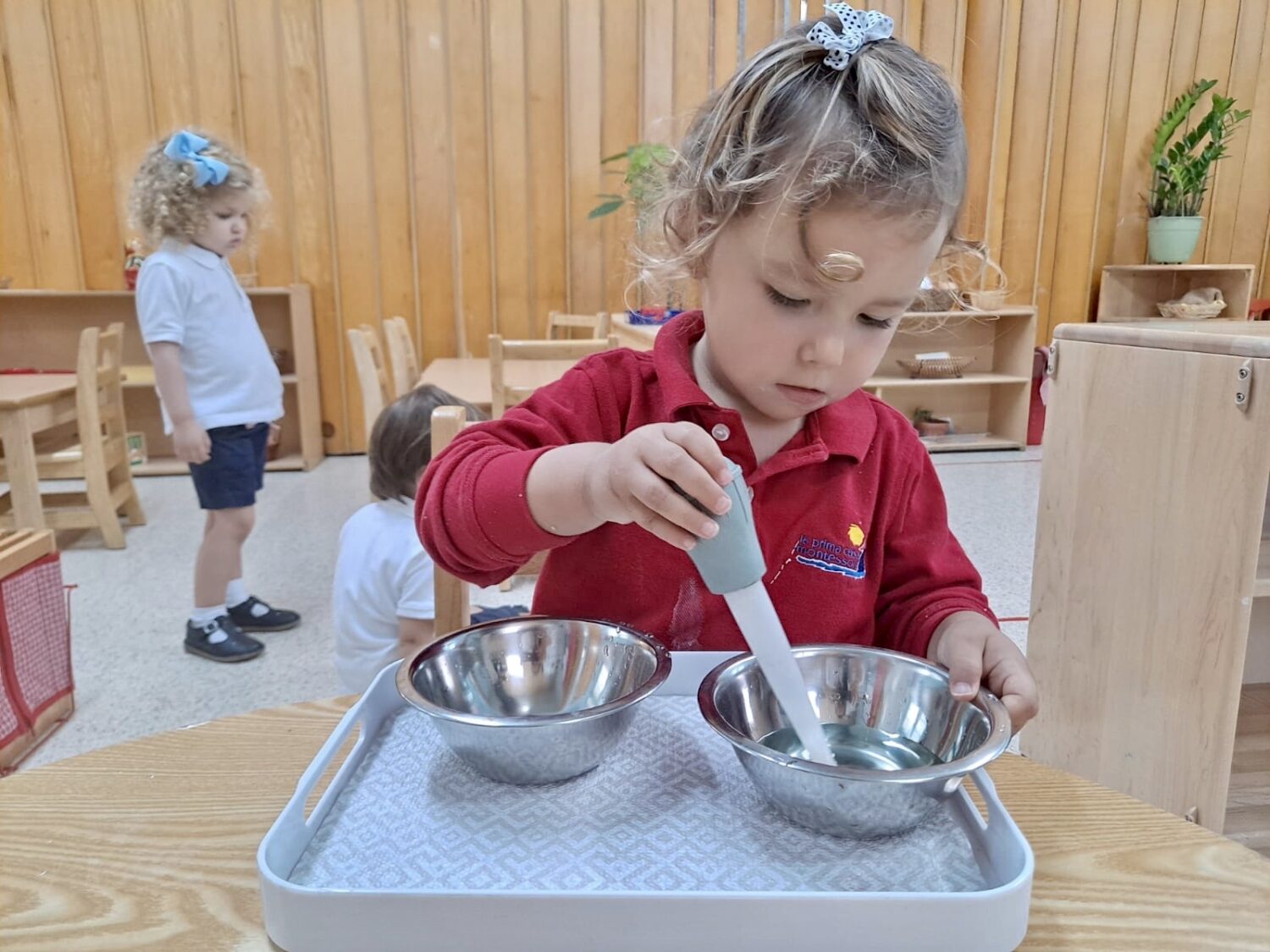As adults, we often think of routine as something dull or boring. However, young children are different.
Studies show that following a consistent routine in a daily life allows children to become more confident and independent. Routine also helps improve children’s educational performance by giving them a sense of “what comes next.” When children know their routine, they will often exhibit more focus, have less stress and master self-control.
One of the hallmark characteristics of the Montessori education is the routine it instills in its students.
Creating “Normalization.”
Montessori classrooms feature a set schedule that helps create what is known as “Normalization.” In this context, Normalization is the Montessori term that refers to a child’s ability to focus, concentrate and work independently in the Montessori environment by their own choice. The routine of a Montessori classroom is an essential part of helping bring focus and drive to the students who previously exhibited difficulty paying attention.
Taking a Balanced Approach.
While Montessori students enjoy the freedom to pursue their own curriculum, that independence isn’t without structure. In fact, it’s the consistent and routine structure of the Montessori classroom that creates this unique learning environment. Knowing their routine allows children to pursue their studies and develop healthy work habits.
Routine for Younger Students.
An organized environment helps students of all ages, but it is especially beneficial for younger children. Having a routine is crucial to helping add structure to their environment. Young children can be organized if there is a system in place that makes it easy for them. At La Prima Casa, our iL Nido and Toddler programs offer the kind of structure that is needed to get the students started with productive learning habits.
Routine at Home.
While children benefit from their school routines, the importance of establishing a routine at home can’t be overstated. Consistent times for eating, reading, work and play help children have a disciplined approach to their daily lives.
Establishing a routine helps create a sense of security for your child. Having a routine that continues from school to home creates a structure that benefits your child throughout the day.
One study has shown that keeping a consistent bedtime for children helps improve cognitive function. According to that study, 3-year-old students with irregular bedtimes had poor performance in math, reading comprehension and spatial awareness. On the other hand, A study by the University of Albany in New York found that children with consistent routines developed better time-management skills and attention to detail as adults.

Routine at Home
When establishing a routine at home, allow the child time to adjust. If you’re trying to set up multiple routines, consider setting them up one at a time or in stages, so as to not overwhelm your child.
Also, just because you are establishing routines doesn’t mean that offering children choices isn’t allowed, especially if you need to change the schedule in some way. If the change can be presented as a choice to the child, they will feel they are in more control of their situation.
At La Prima Casa Montessori, we offer a world of productive routines for children ranging from 6 months to 9 years old. These routines help our students develop positive habits that will follow them throughout their lives.
To learn more about the benefits of Montessori education, please feel free to call us at 305-854-8001 and schedule a tour. It will give you a chance to witness the Montessori philosophy in action and see why it is that La Prima Casa alumni consistently move on to Miami’s top schools and gifted programs!

